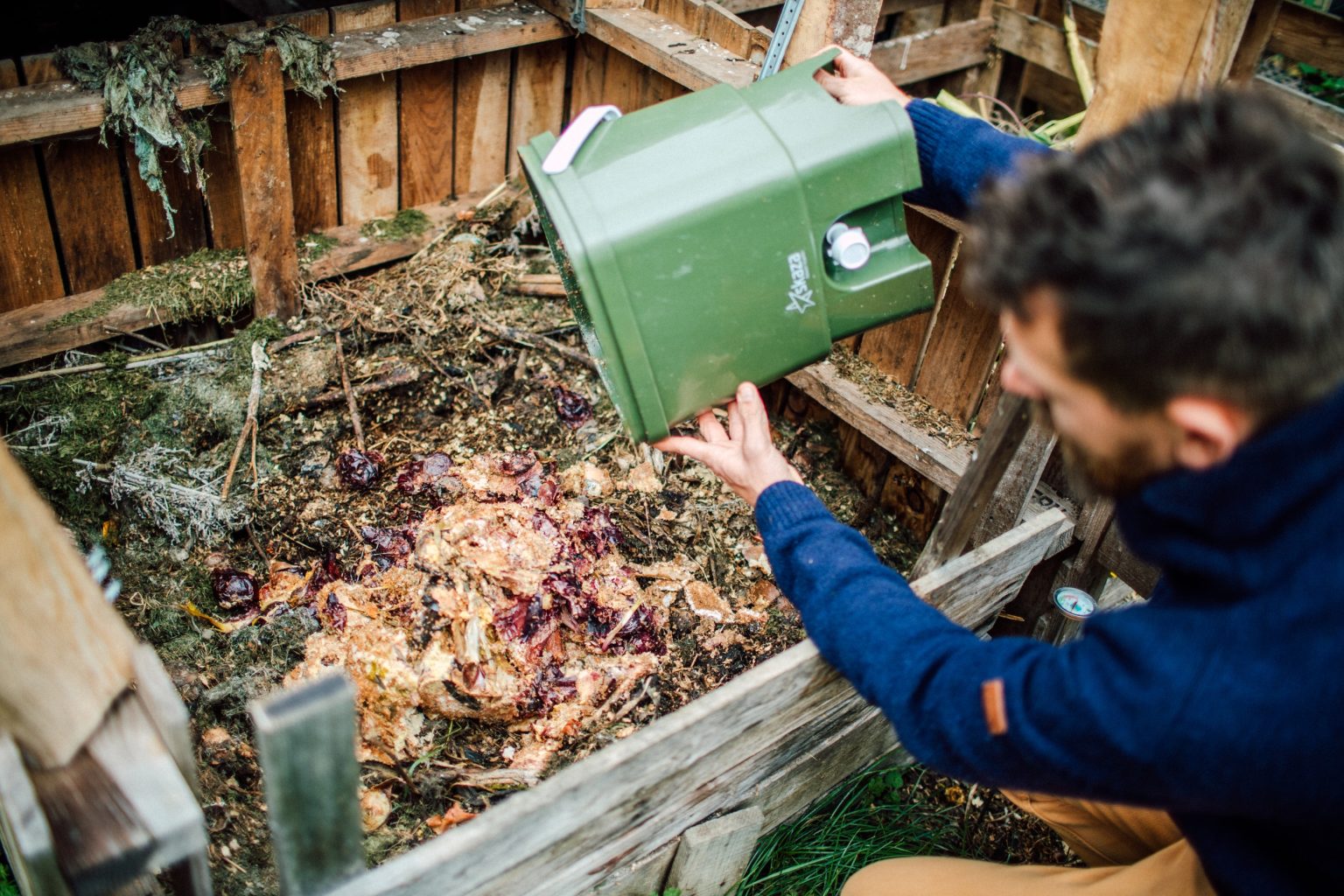
How to compost meat without attracting rats!
Composting is a great step towards a greener lifestyle. It, not only, reduces food waste sent to landfill, and therefore cuts down the carbon footprint of your household or business, but it produces a nutritious, chemical-free fertiliser to feed your garden.
Today we are going to tell you about Bokashi, a type of composting that’s less known than the traditional method, and which we’ve found hugely efficient at reducing our environmental impact and boosting the overall health of our garden.
If you’re already composting or thinking of starting soon, read on to find out how Bokashi can work with traditional composting to boost your results.
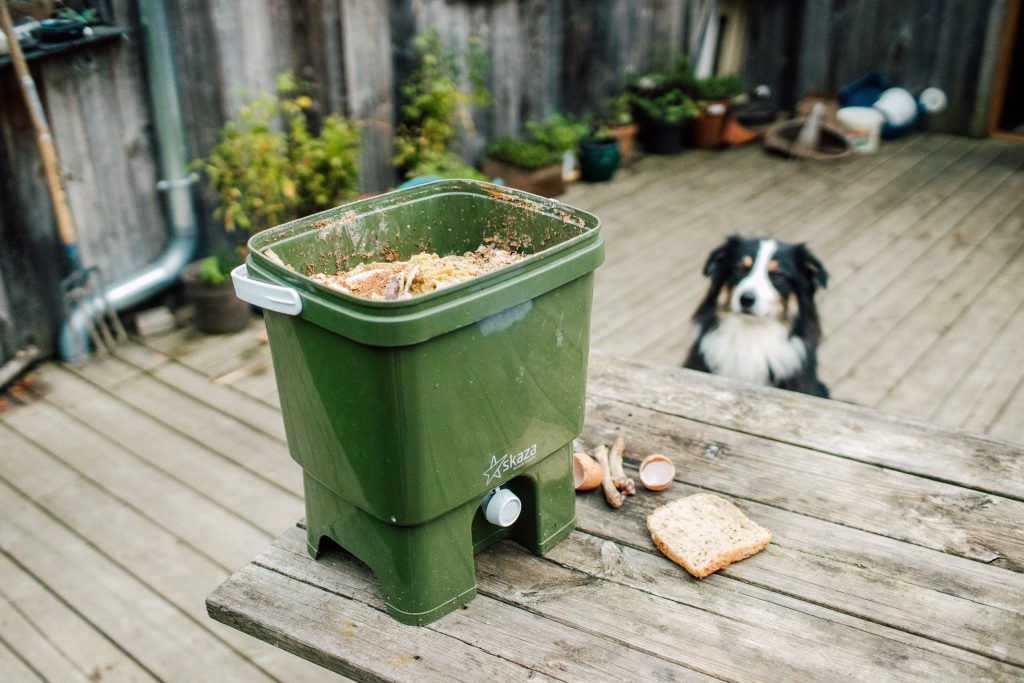
The Basics – traditional composting vs Bokashi
Traditional composting involves layering nitrogen-rich green waste (lawn clippings, organic kitchen waste, leaves) with carbon-rich brown waste (paper, dry leaves, sticks) in equal parts, then allowing time for it to break down. It takes approximately 6 months to produce a dark, nutrient-rich compost that you can use in your garden.
This process is an ‘aerobic’ one that uses air to break down. In contrast, the Bokashi system breaks down food scraps through an ‘anaerobic’ process, meaning ‘without air’ or moisture. For this reason, a Bokashi bin needs a well-sealed lid and the contents pressed down regularly to remove any pockets of air. Bokashi essentially ‘pickles’ your kitchen leftovers to bring them to a pre-compost state.
The air-tight Bokashi bin has a small tap at the bottom to drain off the liquid that is produced during the process. This liquid makes a very nutritious “Bokashi tea” that can be fed to your plants.
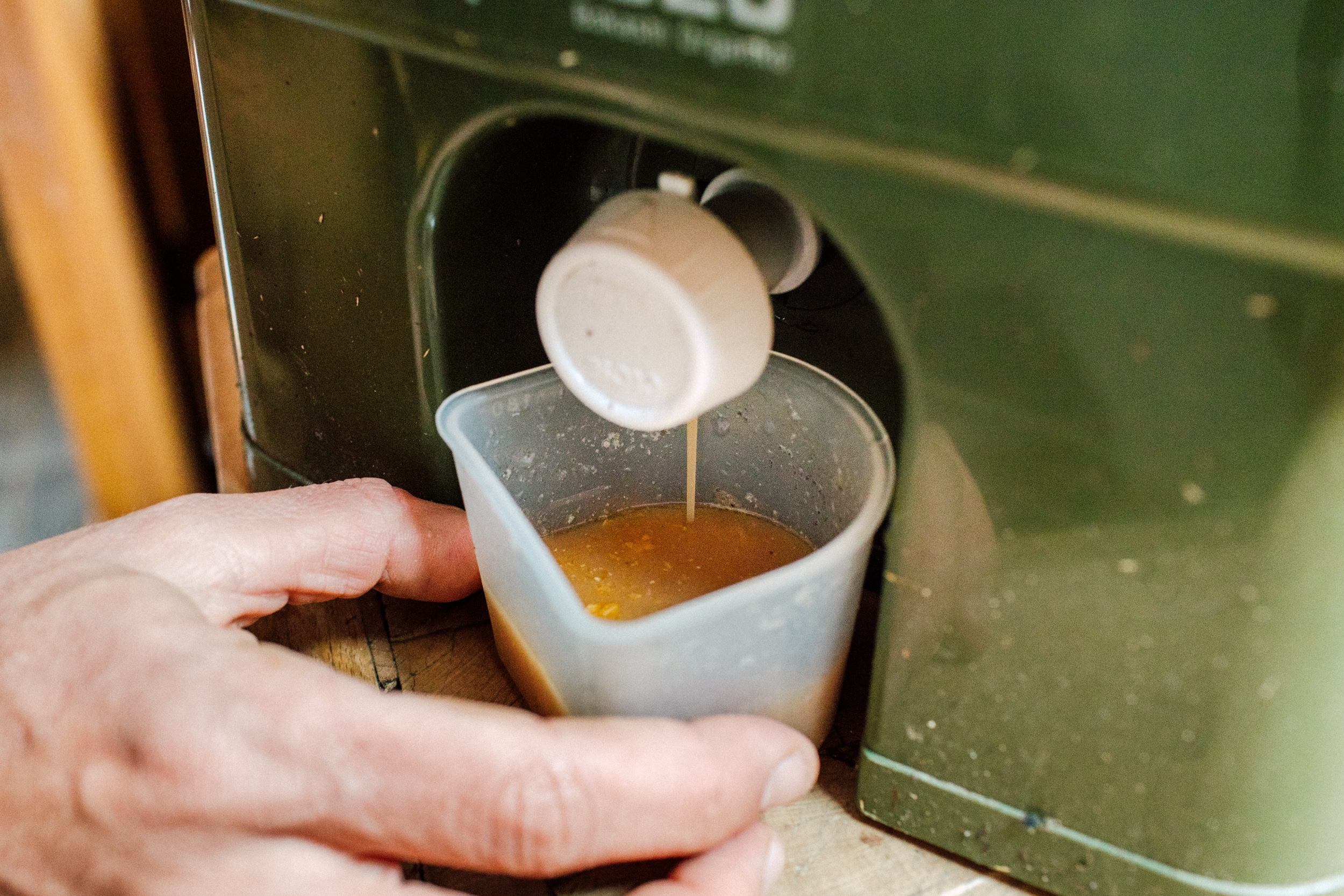
After around ten days of fermenting in the bin, the mixture can either be buried in the garden – where it further breaks down to create a rich soil within 4 weeks – or added to your compost pile to continue to break down. The latter, is what we do, and we find it super easy! Once the bin is full we simply add it to the compost heap, which gives the compost a great boost of microbes and actually helps it break down faster.
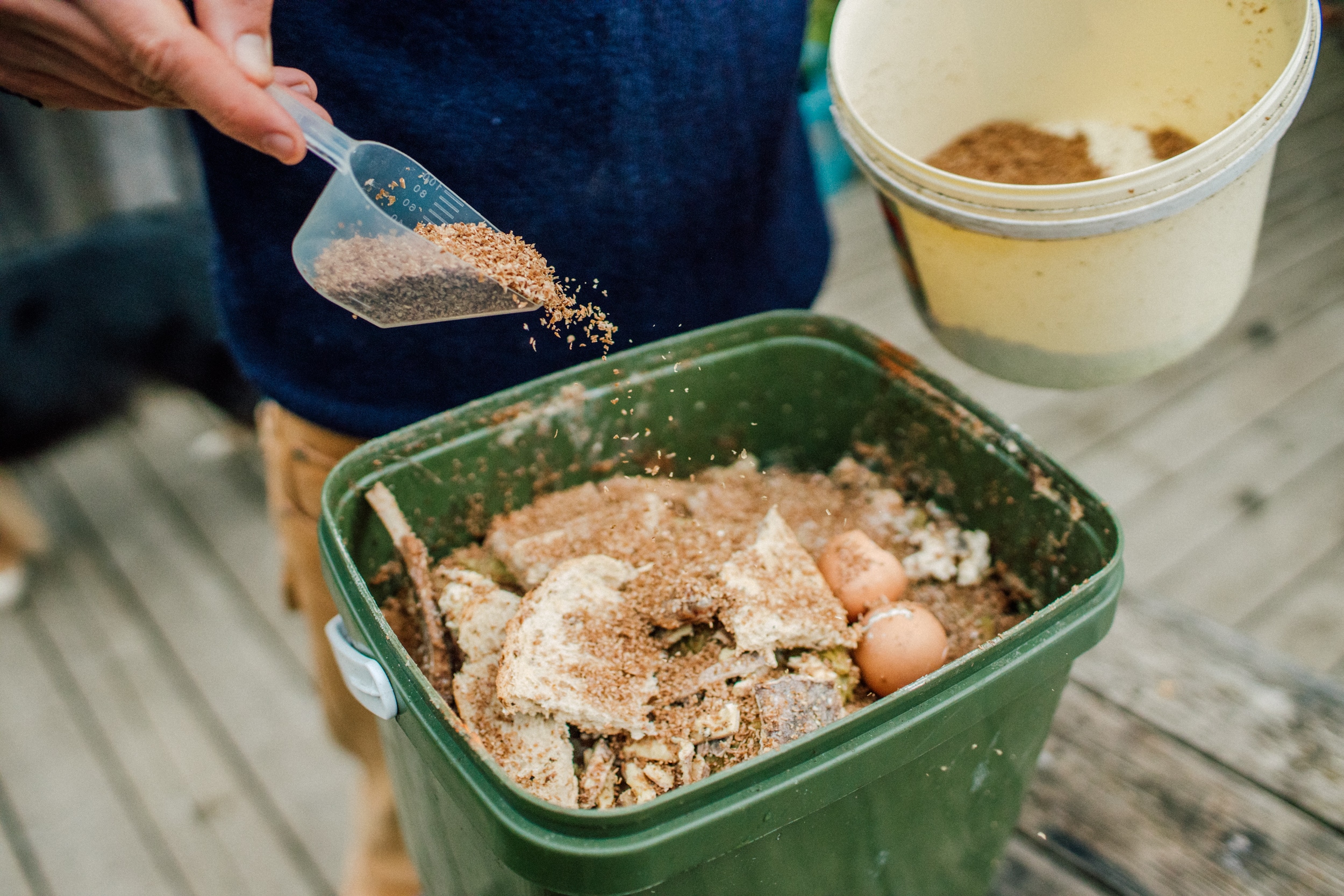
How traditional composting and Bokashi works together perfectly
Keep your compost pile for garden waste which won’t fit in a Bokashi bin – lawn clippings, hedge trimmings and small branches. Plus, your organic kitchen waste (although no dairy, meat or fish).
The small size of a Bokashi bin means it is better suited to fermenting the likes of your banana peels, chicken bones, carrots tops etc. In fact, pretty much all of the rest of your kitchen waste can be added to a Bokashi bin with a few exceptions; rotting food and any liquids (to maintain a dry environment).
It’s worth mentioning, that if you live in an apartment or have a smaller garden where there is little to no garden work to be done, a Bokashi bin is all you really need as a composting solution. The bins’ small size, also means it fits under a sink or in a similar small space.
What’s more, a Bokashi bin isn’t as smelly as a compost pile, plus the sealed environment will not attract insects or rats.
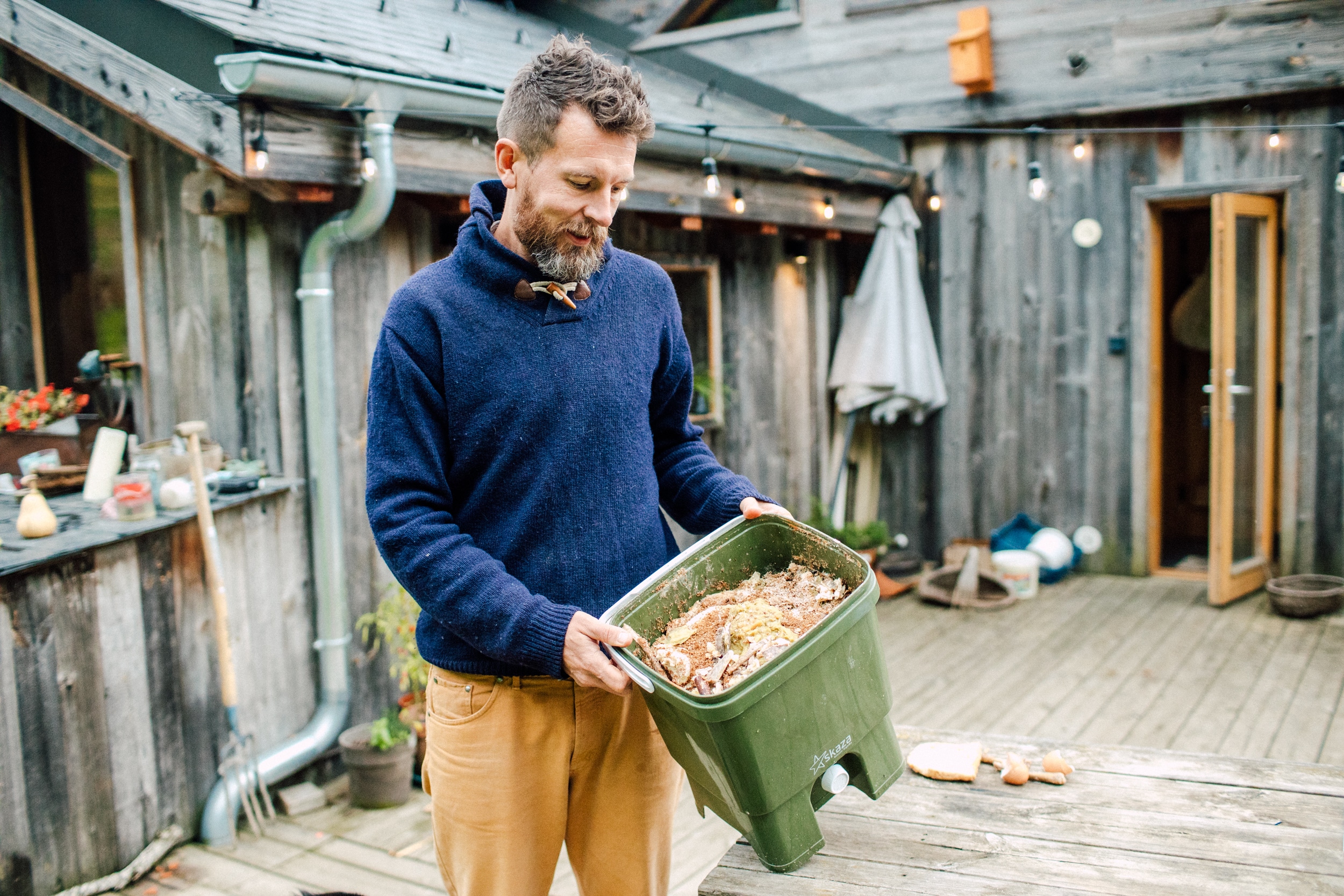
The conclusion
It’s estimated that around a third of the food produced in the world is never eaten; that’s not just wasted food, it’s greenhouse gases produced for no good reason. Turning food waste into a garden fertiliser puts that wasted goodness back into the environment. Thanks to this system, we have zero food waste across all our chalets and central kitchen.
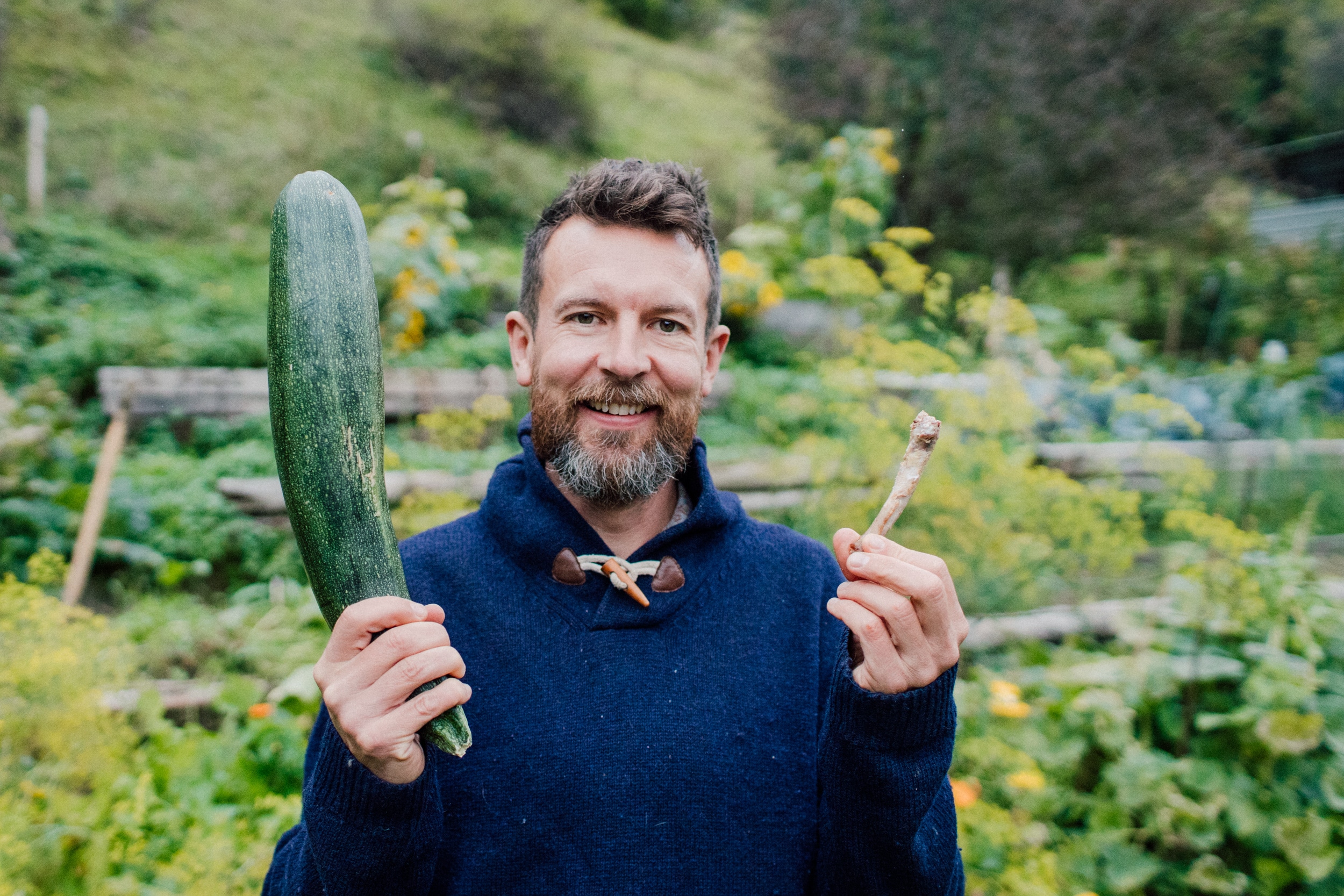
Working towards carbon neutrality: How our guests’ carbon contribution is making a difference
If you’ve booked an AliKats holiday over the last year, you may remember a carbon neutrality transport contribution being added to the cost of your holiday. Here we explain why we introduced that contribution, what it amounted to and what it means for the planet. Minimising our carbon footprint is…
Continue reading...How to make wood chip mulch at home
In our permaculture garden, we are adopting natural, eco-friendly techniques to help our plants thrive. Vegetables and shrubs need well-hydrated, nutrient-rich soil, but bare soil can get damaged by a number of factors, such as persistent weeds, direct sunlight and drying winds. Organic mulch made from wood chips is a…
Continue reading...The Chicken Cycle: The benefits of gardening with chooks
Last year we introduced chickens to our garden and they’ve quickly become a fundamental part of our permaculture gardening system. They’re also comical creatures to have around, and the three youngest AliKats (Ivy, Wilf and Albie aged 8, 6 and 4) have loved being involved in taking care of them.
Continue reading...Making Organic Plant Feed Out of Nettles
What is it? Weeds are often considered a nuisance, but when prepared properly, stinging nettles have many benefits from a food source to a medicinal treatment to a garden fertilizer. Today we are sharing how to put the nutrients in nettles to good use by creating an organic liquid plant…
Continue reading...

